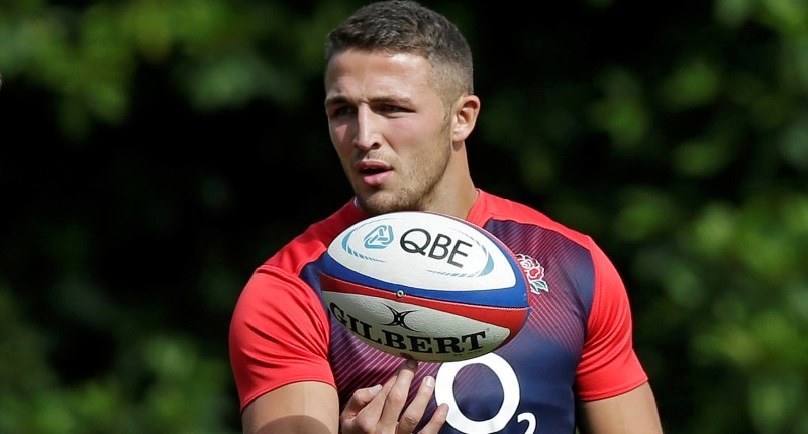Image: Rugby Union – England Training – Pennyhill Park Hotel, Bagshot, Surrey – 1/9/15Sam Burgess of England during trainingAction Images via Reuters / Henry BrowneLivepic
![]()
By Mitch Phillips
LONDON (Reuters) – If their pack delivers its trademark power, the backs continue to deliver a new-found creative spark and they kick their goals, England have every chance of surfing the Twickenham wave all the way to World Cup glory.
Yet should they play as they did in their warm-up defeat to France in Paris last month and some untested combinations fall short, they could easily fail to reach the quarter-finals for the first time, becoming the first hosts to suffer such an ignominy.
Due to the organisers’ short-sighted decision to make the tournament draw three years out, England find themselves alongside Australia and Wales in the toughest group in the history of the World Cup.
One of those big three will be going home early and even the team who go through as runners-up will have a daunting task, probably needing to beat South Africa and New Zealand just to reach the final.
The pool winners face, on paper, an easier route to the final with none of the southern “big three” in the way.
So there is little time to ease into their stride for England, who open the tournament with what could be a testing encounter against in-form Fiji on Sept. 18 before taking on Wales and then Australia, all at Twickenham.
When Stuart Lancaster laid out his grand plan four years ago he envisaged a settled team boasting over 600 caps with proven back-ups in every position — the model for success in most World Cups to date.
But he will go into the tournament with some degree of uncertainty in almost every area of the pitch and with few outsiders really knowing what approach England will take.
Impressive forward power and the solidity of flyhalf Owen Farrell had earned them victories over Australia and Samoa and pushed South Africa close last November and in front of their own fans it seemed that a hard-tackling, set piece-based game was the way to stifle the pace and creativity of the southern hemisphere sides, as well as Ireland, France and Wales.
However, almost by accident, Lancaster has found himself with a young, exciting backline who were scoring fantastic tries at terrific pace and ripping the best defences to shreds.
Centre Jonathan Joseph, wingers Anthony Watson, Jonny May and Jack Nowell, prompted by the ambitious distribution of precocious flyhalf George Ford, suddenly offered a cutting edge, which reached its zenith in the seven-try destruction of France in their final Six Nations game this year.
Settling on the ideal balance of those two approaches is Lancaster’s challenge but whatever he opts for and despite their perceived weaknesses, home advantage is England’s trump card.
Any team who play them at Twickenham, even the All Blacks who were demolished there in 2012, know that they will face an almighty challenge.
(Editing by Rex Gowar)
Copyright 2015 Thomson Reuters. Click for Restrictions.


